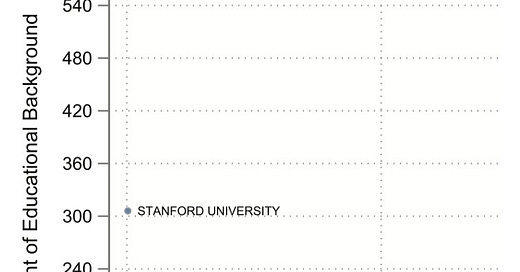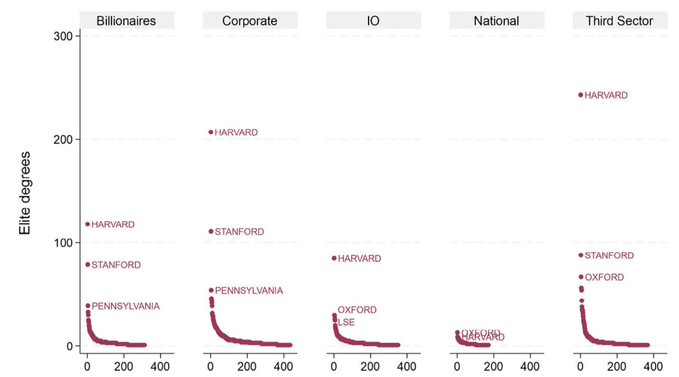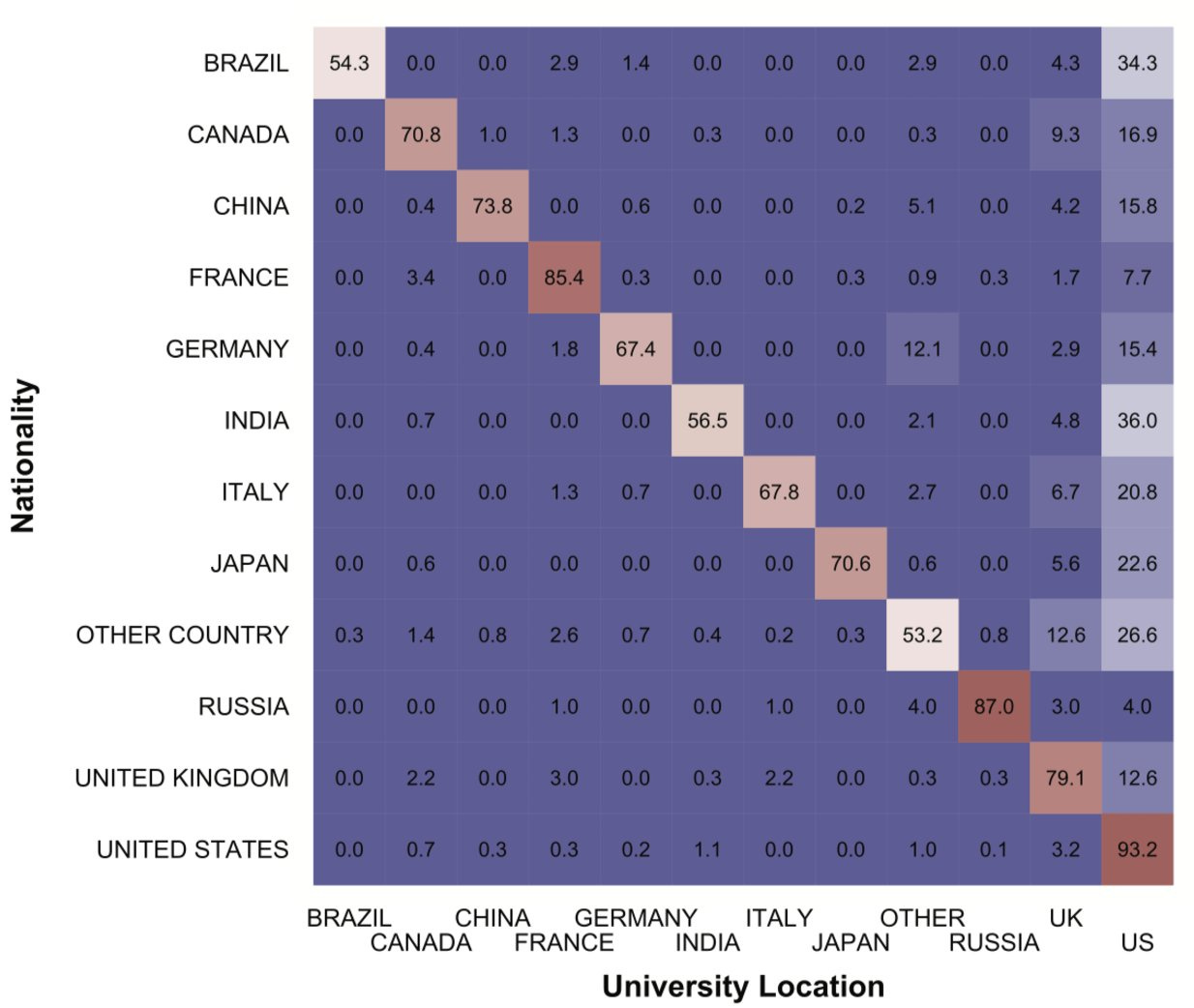Wo ging die globale Elite auf die Uni?
Die kurze Antwort: Harvard.
Fully 10% of global elites went to Harvard. Elite US schools are over-represented (23% IvyPlus), but nobody comes close to Harvard.
Schreibt Paul Novosad, Ökonom am Dartmouth College, auf X.
Wer wird in der Studie zur Elite gezählt?
Milliardär:innen
Vorstände und Vorständinnen von Konzernen
Leiter:innen von Internationalen Organisationen
Nationale Regierungschef:innen
Leiter:innen von Think Tanks
Ingesamt 6000 Personen wurden analysiert. 660 davon studierten in Harvard. Das ist der mit Abstand höchste Wert. Stanford ist mit gut 300 weit abgeschlagen auf #2
Harvard bleibt an der Spitze, auch wenn man alle US-Staatsbürger:innen aus der Statistik nimmt. Aber die britischen Elite-Unis Oxford und Cambridge rücken nach.
Now by sector, elite colleges are more concentrated for corporate and NGO positions than for billionaires and international orgs.
But for country leadership (central bankers and heads of state), the distribution is much more mixed, and Oxford edges out Harvard.
This surprised me a bit — I expected the corporate world to be a bit better at finding ace people from less elite backgrounds than Int'l Orgs.
But maybe networking matters more in business than anywhere.
The flatter distribution of national leaders is b/c most elites still get educated in their own countries.
The U.S. is 2nd place for nationals of every non-U.S. country, with some notable outliers — 34% of elite Brazilians went to U.S. colleges, 36% of elite Indians.
Hier sieht man in der rechten Spalte dem Anteil der Elite eines Landes, der in den USA auf die Uni ging. Der farblich gekennzeichnete, diagonal verlaufende, Wert bei den jeweiligen Ländern zeigt den Anteil der Elite, der im Heimatland studierte.
Hier die Interpretation von Novosad:
To me, this is a pretty clear sign that global leadership is very unmeritocratic. To a first order, going to an elite college is a function of choices made by kids' parents, not the kids themselves. Talented parents may have more talented kids, but there's no way the talent distribution is this skewed given mean reversion across generations. And education is probably better at elite schools, but it is not 5 times better at Harvard than it is at Yale or MIT. And the same for talent. It's much more likely that this is about networks. You rub shoulders with the children of billionaires and corporate titans, they open doors for you for your whole career. This also speaks to the misallocation of talent. There are a lot of brilliant kids who didn't have the parental background to make it to a fancy institution — we want to build pathways for these kids into elite positions. Finally, it's no surprise that elites are increasingly out of touch with ordinary people — a lot of them haven't had much contact with them since age 17 or earlier.







